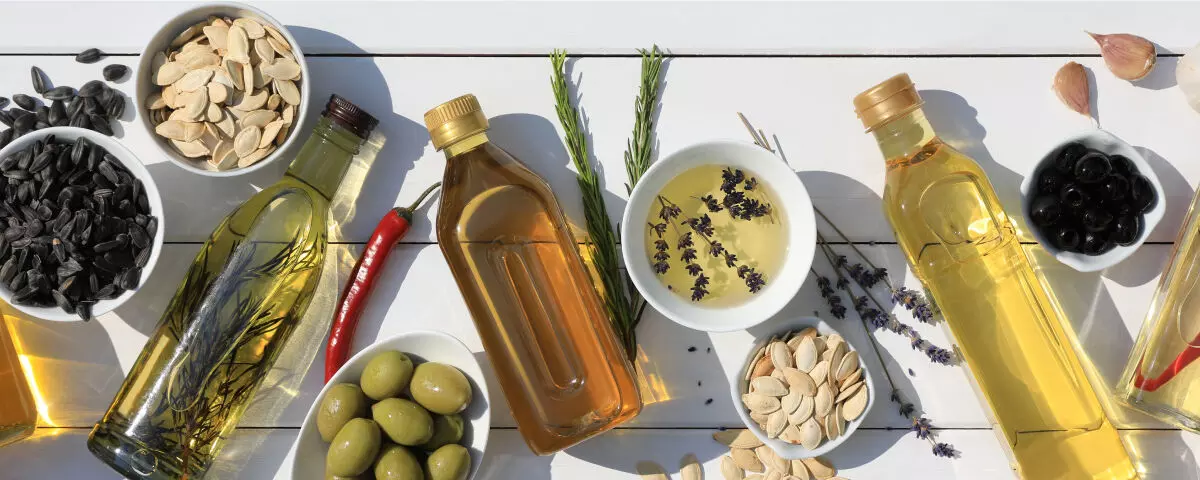Oil choices can affect heart health, say doctors; advise avoiding vanaspati and palm oil
The type and amount of oil directly influence cholesterol, blood pressure, and heart health
By - Anoushka Caroline Williams |
Hyderabad: Heart disease is currently the leading cause of death in India, accounting for nearly 27 per cent of all deaths and more than 2.9 million fatalities in 2021, according to the World Heart Federation.
While tobacco use, sedentary lifestyles and diabetes are widely recognised as risk factors, one often overlooked daily choice is the type of cooking oil we use.
Why cooking oil matters
Oils are central to Indian cuisine, used in frying, curries, tadkas (tempering) and snacks. However, the type and amount of oil directly influence cholesterol, blood pressure, and heart health.
• A study in the Indian Heart Journal notes that Indians consume on average 30–50 grams of oil daily, which is far higher than the recommended 20–30 grams.
• Nearly 70% of Indians still use refined oils or vanaspati (hydrogenated fats), both of which are linked to increased cardiovascular risk.
“Every teaspoon of oil you use is either protecting your arteries or damaging them. Choosing the right oil in moderation can reduce your long-term risk of heart disease,” said Dr Syed Akram Ali, Senior Consultant Interventional Cardiologist, Renova Century Hospitals, Hyderabad.
Heart-friendly oils
Mustard Oil
• Traditionally used in Eastern India.
• Rich in monounsaturated and polyunsaturated fats, with a balanced ratio of omega-3 and omega-6 fatty acids.
• Helps reduce LDL cholesterol and inflammation.
• Caution: Only use refined mustard oil for cooking. Unrefined mustard oil contains erucic acid, which, in excess, may harm the heart.
Groundnut (Peanut) Oil
• Popular in Southern states.
• High in monounsaturated fats and stable at high temperatures, making it suitable for frying.
• A study in the Indian Journal of Endocrinology and Metabolism highlights its positive effect on cholesterol profiles when consumed in moderation.
Rice Bran Oil
• Extracted from the outer layer of rice grains.
• Contains oryzanol, an antioxidant known to lower LDL cholesterol.
• Balanced composition of saturated and unsaturated fats makes it suitable for daily cooking.
• Increasingly recommended by cardiologists as a versatile, heart-friendly oil.
High Oleic Sunflower Oil
• Modified version of regular sunflower oil with higher monounsaturated fat content.
• More stable and healthier than standard sunflower oil, which is usually too rich in polyunsaturated fats.
Oils to avoid or limit
Vanaspati (Hydrogenated Vegetable Oil)
• Contains trans fats, which increase LDL (bad cholesterol) and reduce HDL (good cholesterol).
• Though India banned trans fats in packaged foods from January 2022, vanaspati is still found in homes and street foods.
Palm Oil
• Inexpensive and widely available.
• High in saturated fats, which raise heart disease risk with regular use.
Coconut Oil
• Over 80% saturated fat content.
• Although promoted as a health trend, the Indian Heart Association advises limited use, especially for those with existing cardiovascular risk factors.
Do’s and don’ts for heart-healthy oil use
1. Choose oils rich in monounsaturated or polyunsaturated fats and limit consumption to about 2 tablespoons per day.
2. Prefer cold-pressed or minimally refined oils to retain natural nutrients.
3. Avoid reusing oil for deep frying, as it produces harmful free radicals.
4. Do not rely on vanaspati or palm oil for daily cooking.
5. Remember: “Healthy” oils are not a free pass—balance and moderation remain essential.
The bigger picture
Dr Syed Akram Ali noted, “Changing the type of oil you cook with may seem like a small step, but it can significantly reduce your chances of developing heart disease. Combined with regular physical activity and a balanced diet, this choice can protect millions of Indians from preventable cardiovascular problems.”
Conclusion
The oils we use in everyday cooking play a critical role in determining long-term cardiovascular health.
Mustard, groundnut, rice bran, and high-oleic sunflower oil emerge as safer choices in Indian kitchens, while vanaspati, palm, and excessive coconut oil use should be avoided. With India’s rising burden of heart disease, making informed oil choices, alongside broader lifestyle changes, could be one of the most effective steps toward prevention.